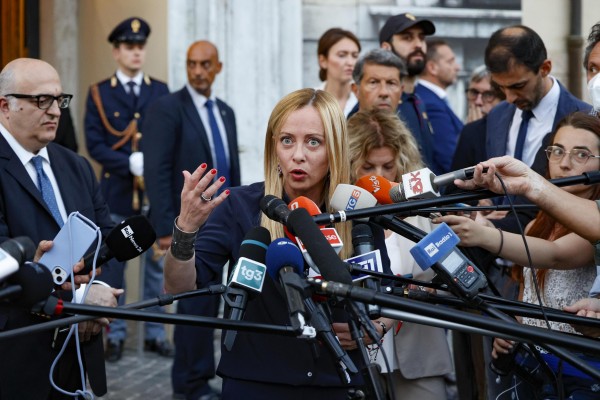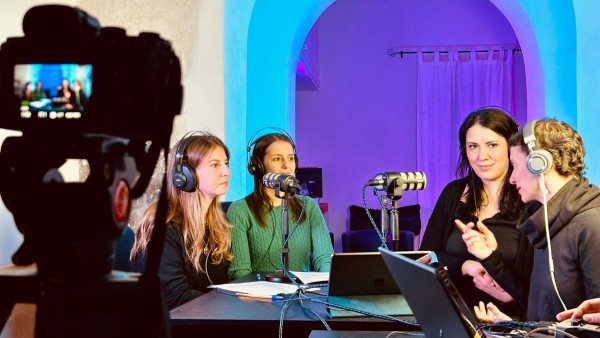Antonio Fontán Pérez, a staunch defender of the principles of free expression, who later became the first Spanish Senate President of the democracy he helped to restore, passed away on 14 January 2010, after a long illness. He was 86.
Born in Sevilla in 1923, Fontán became an honorary life member of the International Press Institute in 1984. In 2000, he was nominated IPI World Press Freedom Hero, in recognition of his contribution to the defence and promotion of press freedom.
Speaking at a ceremony honouring IPI’s World Press Freedom Heroes during the IPI World Congress in Boston, the late Katharine Graham, former publisher of The Washington Post, one of America’s most famous and admired media figures and herself a World Press Freedom Hero, highlighted the “essential and inspiring role” that Fontán and the other IPI Heroes “have played in helping the people of their countries and the world achieve that freedom,” which she said was “an eternal goal for men and women everywhere.”
Alongside his position as professor of Latin philology at the University of Granada, Fontán began his journalistic career in 1952 as the founder and editor of the weekly magazine La Actualidad Española as well as the monthly magazine Nuestro Tiempo.
A strong critic of the authoritarian government of General Francisco Franco, who ruled over Spain from 1939 until his death in November 1975, Fontán was active in clandestine royalist and liberal circles. In April 1967, shortly after Franco’s government introduced a new press law which removed prior restraint, Fontán was appointed editor in chief of the independent national evening newspaper Madrid. However, the end of prior restraint did not mean the introduction of press freedom and Madrid soon became unpopular with the authorities for its coverage of such taboo subjects as student and labour unrest, the growth of regionalism, illegal trade unionism and opposition party activities.
Fontán and his paper were bombarded with sanctions for publishing articles defending democracy and civil liberties and criticizing the Franco regime. Between January 1967 and May 1968 alone, legal proceedings were initiated against the paper on 12 separate occasions. Madrid was shut down for four months on 30 May 1968, inflicting heavy financial losses on the paper, which continued to pay the salaries of its staff.
In October 1971, Spain’s Minister of Information demanded the replacement within 24 hours of Fontán with a journalist close to the Falange fascist party and the appointment of a director to represent the Ministry. Madrid’s publisher, Rafael Calvo Serer, as well as the newspaper’s editorial staff refused to agree to these conditions, and stood up in defence of the independence and dignity of the profession and for the retention of the paper’s present editor.
Eventually, Madrid was closed down by the government in November 1971, after it published an article critical of Franco’s chief assistant, Admiral Luis Carrero Blanco. Spain’s Ministry of Information removed Madrid from the register of press publishers, and ordered the paper to cease publishing.
When democracy was restored in Spain after Franco’s death and the monarchy was re-established in 1975, the Supreme Court revoked the order to close down Madrid. The state was ordered to pay damages to the paper, but this was not enough to restart the daily, which had sold everything in order to compensate its employees.
Fontán was elected to the Senate as a member of the Unión de Centro Democrático coalition party in the first democratic general elections in June 1977. He was one of the authors of the country’s Constitution of 1978, which recognized freedom of expression and freedom of information as fundamental rights.


